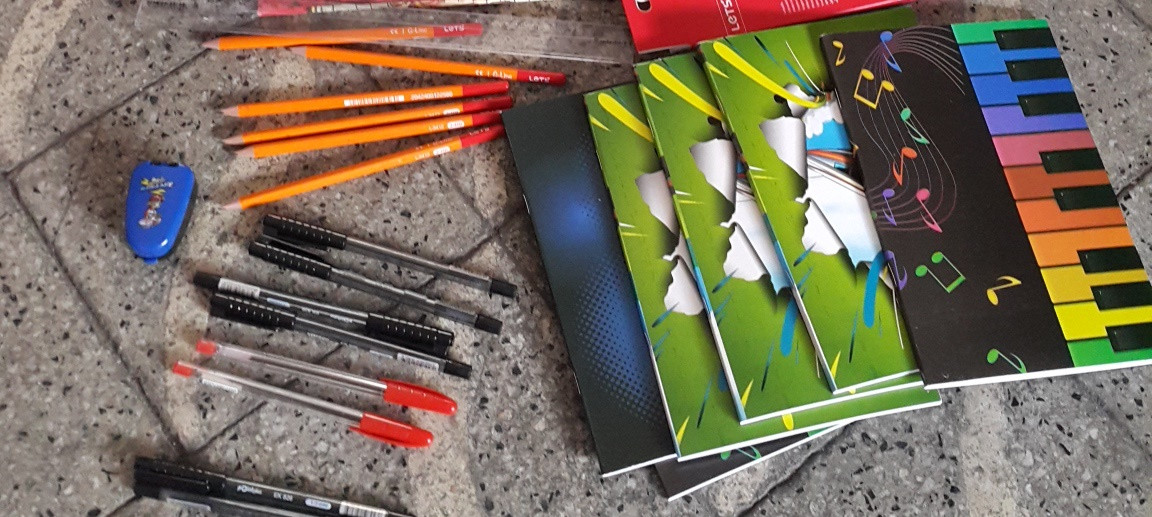Syrian and Turkish Students Celebrate Children’s Day in Turkey with People in Need
Published: Apr 26, 2016 Reading time: 5 minutes Share: Share an articleThe five year long conflict in Syria has had an enormous impact on the education of Syrian children. This 2015-2016 academic year over 2 million children inside Syria are not in school. It is also estimated that over half of all Syrian refugee children currently living outside Syria’s borders are also not receiving an education.

To date, Turkey has registered over 2.7 million Syrian refugees; hosting more Syrian refugees than any other nation in the world. 34.2% of these refugees are between 5-17 years of age and should be in school. While school enrolment rates in the camps are high with nearly 90% of children reported to be receiving an education there, outside the camps less than a third have access to this basic right.
Speaking at a conference on Syrian refugees organized by the Foundation for Political, Economic and Social Research (SETA) in Washington D.C. on the 30th March, the head of Turkey’s Disaster and Emergency Management Authority (AFAD) announced that just 30 percent of Syrian children in Turkey have access to education.
The Turkish Ministry of National Education has adopted two key education models to cater to the educational needs of the huge influx of refugee children from Syria. One of the models is The Ministry’s Temporary Education Centres (TEC) where a modified version of the Syrian education curriculum is followed in Arabic. The second model is the public school system of Turkey, which follows the national curriculum in Turkish. Combined these two education models have received 330,000 Syrian students in the past year and the Ministry intends to increase the number of enrolled students to 450,000 by the end of 2016; and to 900,000 by 2017.
The challenges facing Syrian school-aged refugees
For Syrian refugee children in Turkey, as in other host countries, a number of obstacles stand in the way of their education aside from the educational capacity of the host country. Among such challenges are the language barrier; social integration factors; transportation; and economic hardship which drives the children to work.
#~gallery-1386~#
People in Need’s education programme in Turkey
To tackle some of these challenges, People in Need began supporting three Temporary Education Centres in Hatay province in February 2016. Nearly 400, 000 Syrian refugees live in Hatay province alone. Approximately half of these refugees are under 18 years of age and more than 100, 000 are of school age. However, in this province only 28, 000 children living outside the camps attend school.
So far People in Need (PIN) has supplied over 1100 students in these three schools with learning kits, which include: schoolbags, notebooks, rulers, pencils and other supplies. Additionally, PIN has also supplied 51 teachers with practical teaching materials. Next month, having selected students on a needs basis, PIN will provide 95 students at each with school free school transportation.
 Whilst educational support is the primary focus of our programme in Turkey, PIN’s education team recognises the importance of combining educational support with psychosocial and social integration activities in order to more fully support the learning and wellbeing of the child.
Whilst educational support is the primary focus of our programme in Turkey, PIN’s education team recognises the importance of combining educational support with psychosocial and social integration activities in order to more fully support the learning and wellbeing of the child.
As such, in order to celebrate and acknowledge Children’s Day in Turkey on the 23rd April, PIN supported the schools in organising an event during that week. Efsun Ilhan, PIN’s education programme officer, emphasizes that the main aim of these events was that the students have fun.
Efsun describes that “these children do not have enough space to play games and run around, either in school or at home, and they continue to live in the mindset of war. PIN and the school staff wanted to remind the students that they are still children and wanted to acknowledge them and treat them on their day.”
With the assistance of the teachers at each school, the three schools celebrated the day with a unique focus. In one of the schools, PIN and school staff organized a day-long spring festival with face painting, fabric painting and ball games; at another, the Children’s Day event involved a dance show, more face painting and plenty of singing. In the remaining school, PIN and staff held two separate picnics and sets of activities for the large number of male and female students. Since this school has recently twinned with a local Turkish school, students from the Turkish school were invited to attend the events and join the students in celebration. The event fostered further interaction between the two schools and we hope will open the way for greater cooperation in the future. This was a new experience for teachers and students alike, and both expressed their enjoyment and desire to come together for similar events in the future.
For all three schools, the recreational activities of the day were designed to address a number of objectives including: strengthening communication and cooperation; inspiring personal confidence; building team spirit and developing trust.
In addition to this extra-curricular support, PIN has also introduced parent-teacher associations in the schools. These parent-teacher occasions are designed to better involve the family in the education of the child and allow the families of students to meet and discuss their needs and opinions with school and PIN staff.
It is with the generous support of the European Commission’s Humanitarian aid and Civil Protection department (ECHO) that this assistance is delivered.



